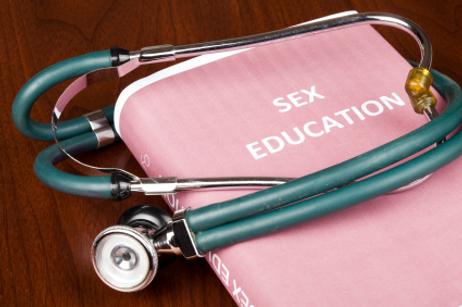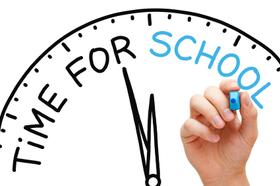With the Obama Administration’s recent addition of an abstinence-only program to the pregnancy prevention programs the government will fund, many are questioning once again whether abstinence teaching is really the best way to prevent teen pregnancy and lower the rates of sexually transmitted diseases. While many conservatives are applauding the President’s recent decision, liberals are voicing serious concern over the direction the Administration is taking in sex education. Who is right? It may depend on who you talk to and which research you review.
Misinformation Common Problem for Young Adults Recent Study Found
According to one recent study published in Perspectives on Sexual and Reproductive Health, the lack of comprehensive sex education in schools does not appear to do young adults any great favor. The study, conducted by the Guttmacher Institute and reported by International Business Times, found that young adults between the ages of 18 and 29 do not appear to have a clear and accurate picture of the importance of contraception use in preventing pregnancy. A quiz was given to 1,800 men and women in this age range, and the results were discouraging, to say the least.
This TED Talk discusses the abstinence of essential information about sex education.
The large majority of young adults who took the quiz scored poorly, with more than one-quarter earning a “D” or “F” grade. In addition, approximately 60 percent of the adults did not believe contraception to be an effective method for preventing pregnancy, despite evidence to the contrary. In fact, 40 percent said that contraception did not have any real impact, saying that “when it is your time to get pregnant, it will happen.” This number was in stark contrast to the nearly 70 percent of the participating adults who said they were “committed” to preventing pregnancy.
The Huffington Post, which also reported on the results of the study, stated that the results also indicated that the more a young adult knew about contraception, the less likely they were to have sex without using protection. This is significant, considering that females who fall into this age category boast the highest number of unwanted and unexpected pregnancies in the country. From the numbers, it does appear that more education could have a positive impact on those rates.
“Programs to increase young adults’ knowledge about contraceptive methods and use are urgently needed,” the study was quoted as stating at Huffington Post. “Given the demonstrated link between method knowledge and contraceptive behaviors, such programs may be useful in addressing risky behavior in the population.”
Abstinence-Only Education Maintains Stronghold in Some Areas
Despite the results and conclusions of this recent study, many Americans believe abstinence-only education is the right direction for this country’s youth. Tennessee lawmakers recently passed a bill that adds language to the state’s abstinence-only policy, prohibiting teachers from talking to students about “gateway sexual activities,” which lawmakers explained are any behavior that could lead to sexual activity. However, despite the state’s efforts to prohibit sex education teaching, Tennessee still has one of the highest rates of sexual activity among teens in the country.
Federal funding is also now going to some abstinence-only programs, through funds earmarked in the Affordable Care Act. The Washington Post reports that the Heritage Keepers’ Abstinence-Only curriculum has been added to the list of funded programs by the Administration. Those in favor of promoting abstinence-only education have applauded the decision.
This video from Columbia Christian discusses choosing abstinence.
“What we’re hoping is that getting one program on the list shows that they’re willing to look at the issues of teens and sexual risk avoidance,” Valerie Huber, president of the National Abstinence Education Association, told the Washington Post. “I certainly do hope this could be the beginning of a new trend,” Huber added.
Health and Human Services told the Post that Heritage Keepers’ program was added to the federal list because it had evidence-based proof that the curriculum was effective in impacting student behavior. The department explained that evidence-based research is the primary criteria used to determine which programs would receive funding – not whether they taught abstinence-only practices.
“What we’re committed to is impartial research, and then sharing the information so that communities can make the choices that are appropriate for them,” Mark Weber, a spokesman for Health and Human Services, told the Washington Post.
Sex Ed: Collaboration between Parents and Teachers
Many school districts and individual educators agree that the best way to educate teens about sex is through a collaborative effort between parents and teachers. The Daily News offered recent examples from teachers who were presenting sex education material in their classrooms, which ranged from abstinence-only to distributing contraception in the classroom. Although the gamut of education philosophies is broached, the majority of teachers feel most comfortable teaching that abstinence is the best choice, but educating students on the facts about contraception, pregnancy, and STDs at the same time.
Some teachers also believe that sex education courses should include lessons on decision-making and self-esteem to help students make the right choices when the situation calls for it.
“If a student…can communicate their limits and have decision-making skills, they’re going to have better outcomes, we hope,” Julie Lane, a health teacher at Bowling Green High School, told the Daily News.
This video from PBS reports on how some schools are rethinking sex education.
Even teachers who are allowed to present the facts in their classrooms do not believe it is sufficient in completely impacting student behavior. These teachers believe sex education must be a partnership between parents and schools to make the process most effective. Parents need to know what the schools are teaching, and schools need to know that parents are supporting the curriculum by instilling their own values and information on their children at home.
“I can talk to them a couple of weeks,” Scott Carroll, a health teacher at Warren Central High School, told the Daily News. “I can give them the facts. The most impact is when it comes from home and having a good relationship with the parents.”
Questions? Contact us on Facebook. @publicschoolreview















